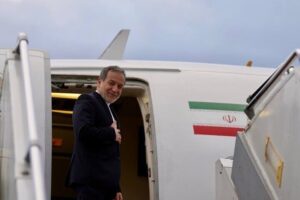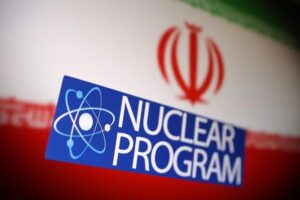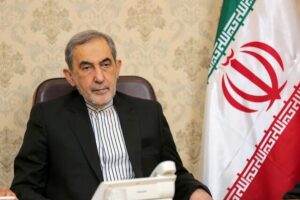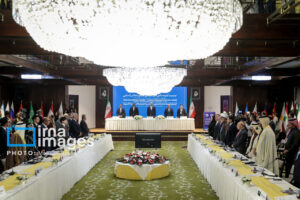Addressing the 76th session of the Executive Committee of the United Nations High Commission for Refugees, held in Geneva on October 7, Deputy Minister of Interior and Head of the Social Affairs Organization of Iran Mohammad Bathaiei said the country has supported Afghan refugees for more than four decades, providing education, healthcare, and shelter despite facing economic sanctions and limited resources.
He also criticized declining UNHCR budgets and insufficient aid to Iran, urging stronger international cooperation and concrete plans to facilitate the voluntary return of displaced Afghans to their homeland.
What follows is the text of his speech:
Chairperson His Excellency, Mr. High Commissioner Honorable Colleagues;
At the outset, I would like to make note of the ongoing human catastrophe in Gaza and the heinous genocide of Palestinian civilians by the Zionist regime which has led to the displacement of millions. It is upon the international community to explicitly and unconditionally condemn the unfettered bombing of schools and hospitals as well as the killing of civilians. We pay respect to the victims of these atrocities – in particular United Nations’ staff in the region – and equivocally condemn these crimes. In its cowardly attack on the Islamic Republic of Iran, the Zionist regime murdered hundreds of Iranian citizens. The regime must be made accountable for its unlawful criminal actions by members of the international community.
The Islamic Republic of Iran has been hosting a significant number of Afghan refugees and displaced persons for over four decades which posed numerous challenges in this regard; this includes among others, the financial burden, overpopulation, pressure on infrastructure, reduced resilience of the host communities, security concerns, healthcare challenges, educational burden, social tensions and negative environmental impacts.
Annually, billions of dollars are spent in providing food, shelter, education and healthcare services to foreign nationals in the country including illegal Afghans. As an example the cost of 1500 dollars for each Afghan student benefitting of various educational services. In addition to that, the government has provided for the education of all illiterate individuals across age groups. This has improved the literacy rate from around 5 percent to nearly 70 percent.
Temporary solutions cannot sustainably resolve the issue of refugees. It is upon the UNHCR and the international community to make greater efforts to facilitate and expedite the return of displaced persons to their country of origin.
As the High Commissioner has repeatedly emphasized the burden and responsibility of hosting refugees must be shared by the international community. Unquestionably, the notion that a single country should undertake the burden and cost of hosting or managing millions of refugees or displaced persons is neither pragmatic nor just. It is noteworthy that the principle of burden sharing has to great regret not been observed with regards to my country therefore this situation cannot be continued. While it is estimated that the number of globally displaced populations will rise to 136 million people, it is a grave concern that UNHCR’s budget has been cut by 20 percent from 10.6 billion dollars 8.5 billion dollars. In that light we continue to follow the situation closely and with great concern.
As UNHCR budget suffers from cuts, the severity of challenges in our region are increasingly on the rise. We note in disappointment that the 2026 UNHCR Tehran Office budget has remained at $140 million; a figure that is utterly insufficient in addressing our challenges. Such allocation stands in clear contrast to the millions of dollars spent by Iran, in spite of its serious resource strains and limitations imposed through Unilateral Coercive Measures (UCMs) in delivering health, education and other services to Afghan refugees and displaced persons.
Regarding the current policies of the UNHCR in relation to international protection, while recognizing the importance of this principle we note that the UNHCR’s approach in Iran has led to the prolonged presence of Foreign Immigrant Nationals in the country which is in stark opposition to the interests of frontline countries like Iran whose social fabric is under severe pressure and heavily impacted by these populations.
Distinguished Colleagues;
The international community is evidently backing down from responsibility-sharing. Iran’s support for refugees and displaced persons cannot remain indefinite. Serious and phased planning in line with the sustainable resolution of these issues including the facilitation of returns must be put at the forefront of international cooperation and responsibility-sharing.
To conclude we wish to express our appreciation for the recent positive visit of the High Commissioner, Mr. Filippo Grandi, to the Islamic Republic of Iran. As he approaches the conclusion of his mandate, we extend our sincere gratitude for his dedicated efforts and leadership. We also express our hope that UNHCR will continue to play its constructive and vital role in supporting host countries and advancing sustainable solutions for refugees. We ask the UNHCR to implement a just and needs-based budgeting model that truly reflects the imbalanced and overwhelming burden that is incurred by major host countries.
I thank you.







